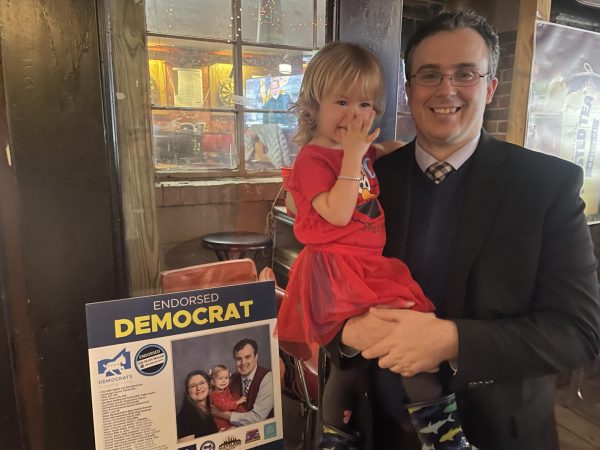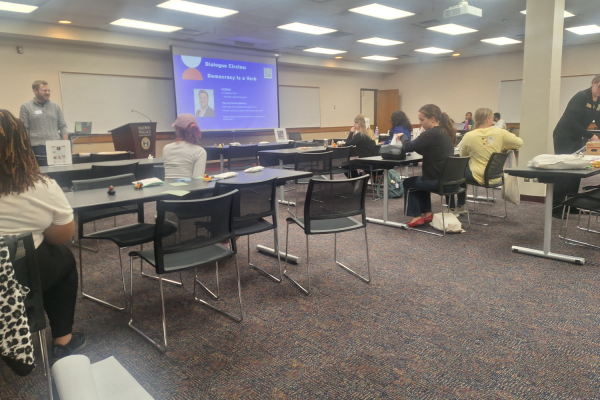Motivated by worker protections, BW student mulls run for Ohio House of Representatives
“Companies need to be held accountable for breaking the law,” Ryan Palmer, a marine veteran student with a double major in management and industrial psychology, said.
Ryan Palmer, a marine veteran and BW student with a double major in management and industrial psychology, is planning to attempt a run for state representative in Ohio’s 17th district in the next election.
Palmer decided to run after one of his ex-coworkers reached out to him and presented the idea to him.
“He goes, ‘You stand up for regular people all the time.’ He’s like, ‘Why not just do this?’ I pushed back on it here and there. I was like, ‘I’m not a politician,'” Palmer said.
Palmer said that he once helped his friend, who, while working and long demanding hours at a Chipotle location, was told by his manager that he was not allowed to use the bathroom.
The friend suffered from irritable bowel syndrome, a condition that often includes frequent urgues to use the bathroom. According to fedral worker protection laws backed by the Occupational Safety and Health Administration, employees with medical conditions should not have bathroom breaks be restricted by employers.
Palmer said that he believed the Chipotle manager’s conduct was a violation of law and sprang into action.
“I printed out a 52-page law and highlighted all the parts of that law that the [Chipotle manager] broke and then I sent it to him,” Palmer said.
Palmer said a lot of workers may be unaware when their employer violates the law and their rights.
“She had no idea she was protected by the federal law. Now she stands up for herself,” Palmer said.
In an interview with The Exponent, Palmer also railed against arbitration agreements, which are contracts frequently given to employees along with other onboarding paperwork. If signed, the agreements forbid employees from pursuing legal action against their employers. Instead, disputes are resolved through a process of arbitration.
Palmer said that most of the time, arbitration agreements shield the employer from accountability. Palmer said that instead of a trial lasting a week, an arbiter can do four cases before noon on a given day.
“Some people know they have rights, but what do they do about it?” Palmer said. “How many people are actually gonna put their hand up and say, hey, I’m willing to sue my employer to protect my rights. Not many.”
Palmer is thinking of filing for a state house run in early February. Running for state representative requires filling out a form, paying an $85 fee and receving 50 signatures from citizens within the district in which candidates seek office.
State representatives must live in the district they represent. Palmer, initially thought his Baldwin Wallace address would be in his district, until he checked the district lines meticulously and found out it wasn’t.
“If I get the district wrong, they’ll be, like, ‘You’re not allowed to do this.’” Palmer said. “Now Ohio may end up redistricting now. And at that point, I have no idea.”
While a potential run for office remains up in the air at the moment, Palmer is motivated by a desire to help protect employees that may be exploited.
“I want to [run for state representative] because companies need to be held accountable for breaking the law,” Palmer said.
The Exponent is looking for financial contributions to support our staff and our newsroom in producing high-quality, well-reported and accurate journalism. Thank you for taking the time to consider supporting our student journalists.






































